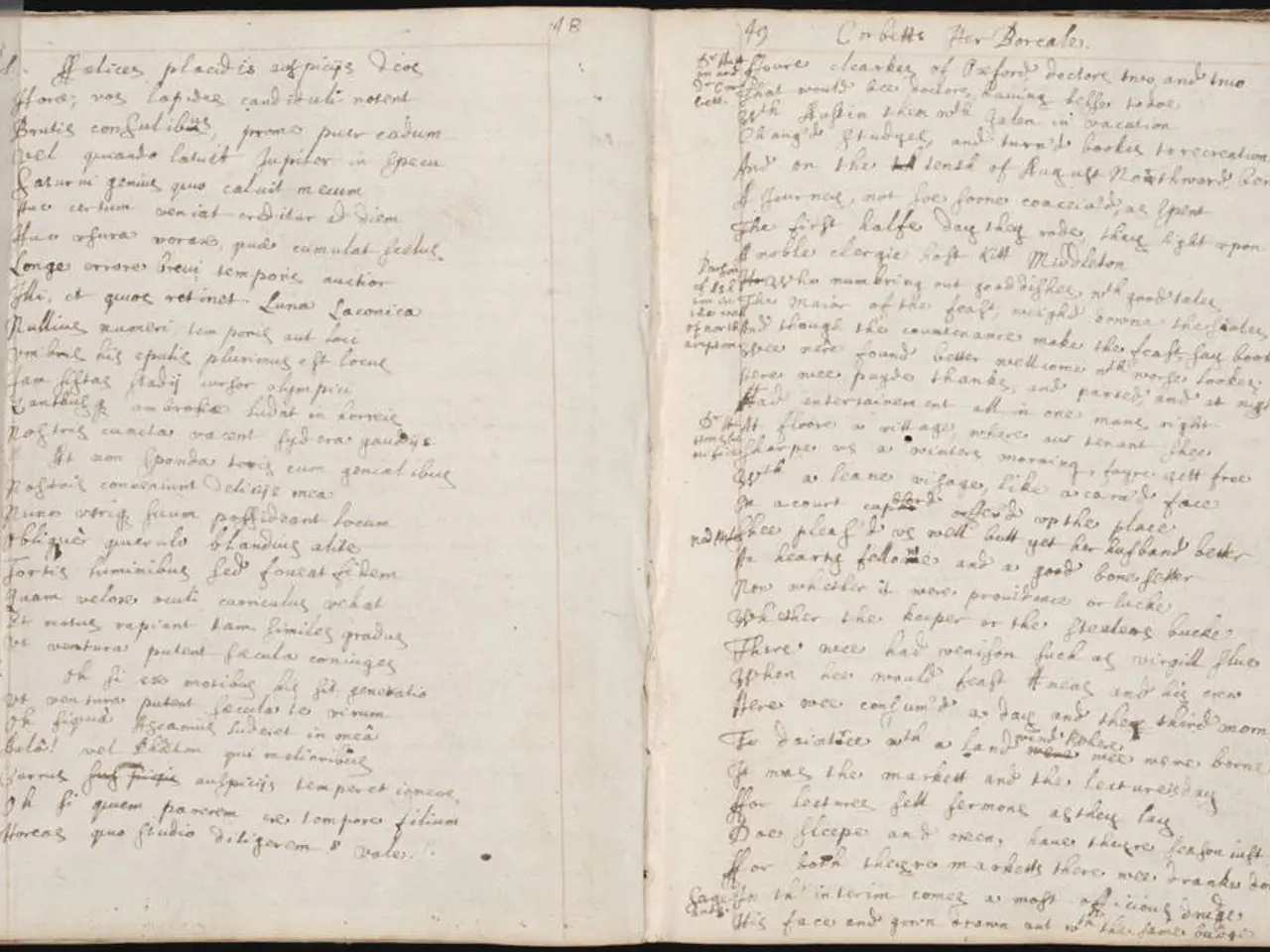Exploration of Yoko Tawada's Berlin: Beyond Typical Stereotypes
========================================================
Yoko Tawada, a Tokyo-born author who writes in both Japanese and German, has become a celebrated figure in Berlin's literary scene. Born in 1960, she has resided in Hamburg and Berlin since 2006.
Tawada's unique literary voice, which effortlessly crosses languages and cultures, has earned her the title of the great international author of Berlin today. Her work, encompassing novels, poems, plays, and essays, often delves into themes of language, identity, and migration.
Her studies in Russian literature at Waseda University in Tokyo and German literature in Hamburg and Zurich have undoubtedly shaped her distinctive style. Tawada's works reflect her profound erudition and linguistic innovation, making her a significant contributor to contemporary literature.
One of her most notable achievements is the book Three Streets, which brings her interest in metamorphosis and the blurring of representation and reality to bear on Berlin's geography. Her work has also been praised for her humane experiments in climate dystopia and her opposition to xenophobia.
Tawada's Berlin is a multi-place, constantly on the verge of metamorphosis. Her books often depict an absorbing in-between state, a shimmering multiplicity of meaning. In her essays, both language and life are often presented in botanic-biological terms.
Linguistic lurches and slips are present in Tawada's work, as seen in her Celan novella. Multilingualism is essential in her work, and her stories, poems, and essays explore the various ways words change within and between languages.
Tawada has won major prizes such as the Akutagawa Prize (Japan), the Tanizaki Prize (Japan), the Adelbert von Chamisso Prize (Germany, for non-native German writers), and the Goethe Medal for contributions to German culture. She is also a member of the alternative literary canon curated by New Directions.
Tawada writes her books in either Japanese and German, and her works are translated into English by Margaret Mitsutani or Susan Bernofsky, respectively. In addition to her work as an author, Tawada is an accomplished translator.
Yoko Tawada's writing often addresses everyday xenophobia and the threat of right-wing populism. She describes Berlin as an amusement park of the senses, a rehearsal for revolution, a restaurant where loneliness is devoured, a workshop for words.
In summary, Yoko Tawada is acclaimed as a great international Berlin author because of her bilingual and cross-cultural literary production, prestigious international awards, and her thematic focus on language and identity, which resonates strongly in today’s globalized world and Berlin’s multicultural context.
- Yoko Tawada's literary works, which include novels, poems, plays, and essays, can be found in various sections of bookstores such as 'home-and-garden', 'general-news', 'entertainment', and 'books'.
- Despite her current residence in Berlin, Yoko Tawada's lifestyle still reflexes her Japanese roots, making her a fascinating figure in both German and 'home-and-garden' magazines that focus on foreign cultures.
- Yoko Tawada's travel experienceshave been a significant influence on her literary career, with many of her works setting the backdrop in different cities like Tokyo and Berlin, offering elements of 'travel' and 'home-and-garden' literature.




